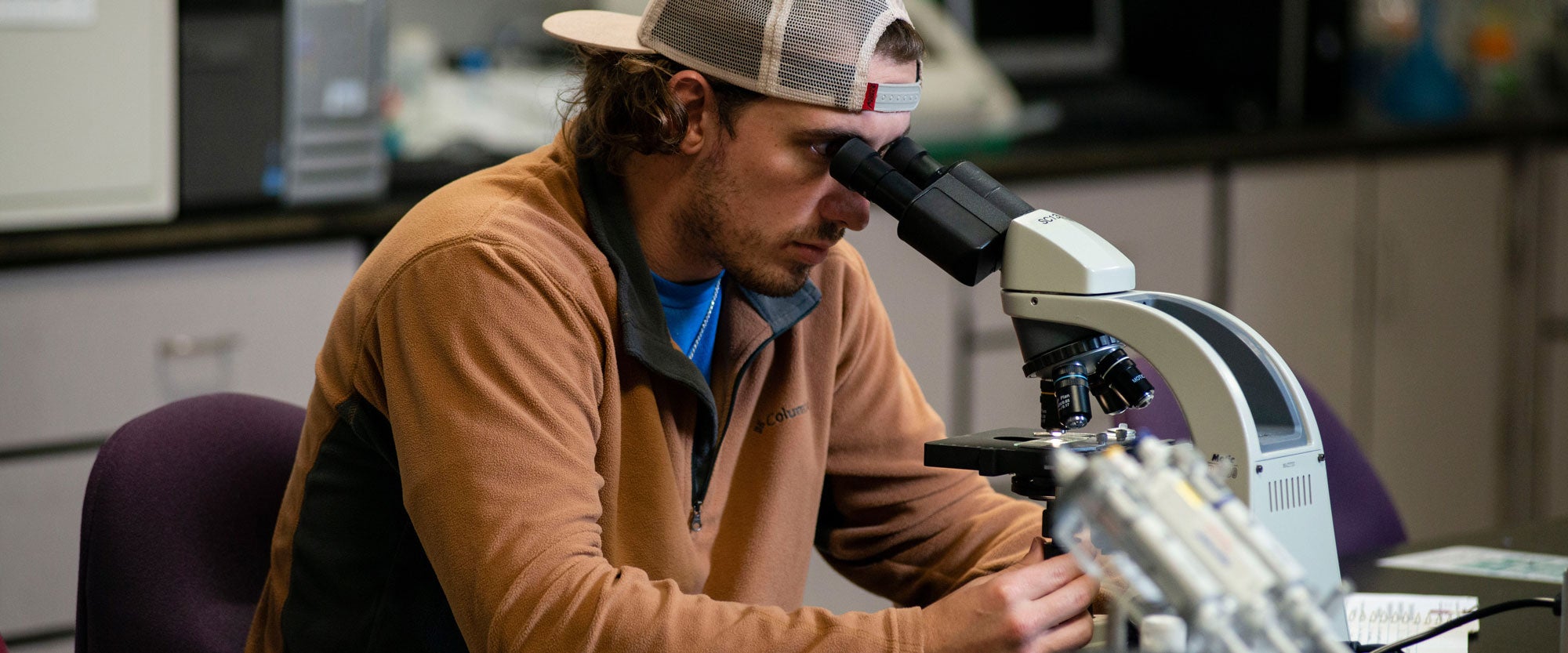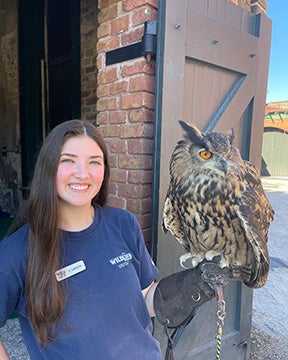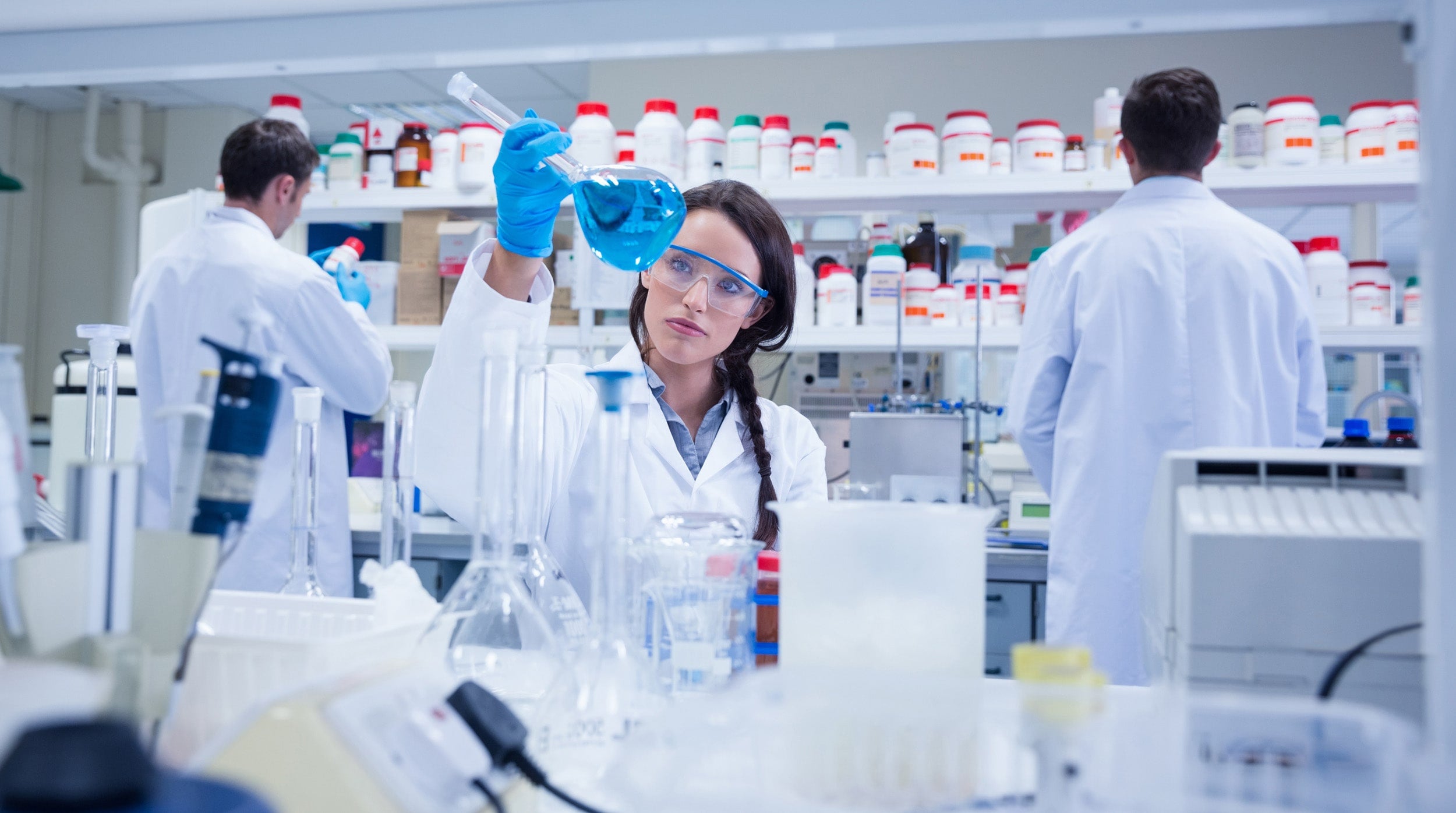Take the first step toward a career in health care, conservation, pharmaceutical research or dozens of other fields with a bachelor’s degree in biology from Georgia Southern University, and use your knowledge to make the world a better place.
Locations
- Statesboro Campus (In Person)
- Armstrong Campus (In Person)
- Liberty Campus (In Person — First Year of Coursework)
- Online
Why Major in Biology at Georgia Southern?
- Ranked 11th among Georgia’s Best Colleges for Biology Majors, 2023 (Niche).
- Study at the largest center for biology research and education in southern Georgia.
- Flexible curriculum allows you to focus on your interests.
- Engage in hands-on research in the lab and field, and get a chance to present your findings in local, regional and national forums.
- 124 credit hours to completion.
Biology is the study of everything related to life and how organisms interact with the nonliving environment — from the chemical building blocks of cells to the complex interplay of organisms in ecosystems around the planet. However you choose to build your degree, your classes prepare you to solve problems, apply theories in the real world and address environmental concerns. You can use biology as a starting point to discover new medicines, treat diseases, protect endangered species, conserve wild habitats and more.
Before you blaze a trail of your own, though, you’ll have a chance to learn from award-winning faculty mentors known for their teaching, research and service. Couple that with access to cutting-edge teaching and research labs and extensive field experience, and you’ll be ready for whatever is next.
Ready to Apply?
What Can You Do With a Bachelor’s in Biology?
“The study of life” covers a lot of ground, as does a description of the careers students can pursue with a biology degree. Biology graduates from Georgia Southern are poised to go on to graduate school, work in a lab or find jobs in fields that demand the research, problem-solving and critical-thinking skills they acquire while here.
Many biology majors find that their internships, research projects and campus jobs lead to job offers. Experience counts, and at Georgia Southern, there are plenty of opportunities to gain it.
Where our graduates work:
- Abbott
- Atlanta Zoo
- AstraZeneca
- Centers for Disease Control & Prevention
- Cobb County Schools
- DaVita
- Disney World
- Emory Healthcare
- Georgia Department of Public Health
- Georgia Southern University
- Merial
- Memorial Health
- Northside Hospital
- Quintiles
- SeaWorld
- SNF Holding
- U.S. Army
- U.S. Environmental Protection Agency
- U.S. Fish & Wildlife Service
What our graduates do:
- Aquarium, zoo or museum curator
- Agroecologist
- Biomedicine or health professional
- Educator
- Environmental scientist
- Fish, wildlife or resource conservation professional
- Dentist
- Geneticist
- Marine biologist or coastal ecologist
- Microbiologist
- Molecular and cell biologist
- Pharmaceutical scientist
- Pharmacist
- Physical therapist
- Physician
- Physician assistant
- Sustainability coordinator
- Veterinarian
- Zoologist
What You’ll Learn
Georgia Southern offers two biology degrees: a Bachelor of Arts (BA) or a Bachelor of Science (BS). The BS degree program is ideal for students who want to pursue graduate studies or a career in the biological sciences. Electives and concentrations allow these majors to focus on a particular area of interest, including sustainability and environmental biology, natural resources and wildlife, marine biology, pre-medical and pre-professional studies, ecology and evolution, or cell and molecular biology.
The BA degree program provides a more customizable, interdisciplinary course of study, giving students more flexibility to explore disciplines outside of biology and greater exposure to the liberal arts. Many add breadth with a minor in the humanities or a related area, such as art, music, criminal justice or chemistry. This format additionally has a foreign language requirement.
BS in Biology Curriculum BA in Biology CurriculumConcentrations
Six concentrations reflect the broad scope of the biological sciences and let students specialize their degree to their career aspirations — including fulfilling medical and professional school prerequisites. All concentrations require an immersive experience, including an internship, course-based project or in-depth research. Students, in turn, gain experience that grows their achievements and perspective of the field ahead of graduate school or a job.
Sustainability and Environmental Biology
Explore solutions to challenges such as climate change, threats to coral reefs, and air and water pollution. Electives include classes in conservation biology, evolution, marine ecology and more.
Natural Resources and Wildlife
Aimed at students passionate about wildlife conservation and protecting habitats, classes cover topics such as invasive species, wildlife management, animal behavior, evolution and more.
Marine Biology
Overfishing, warming waters and pollution all pose grave threats to aquatic life. Learn to develop and implement conservation strategies to protect our oceans and the species living within their depths. Take electives in ichthyology, marine pollution, sea turtle biology and more.
Pre-Medical and Pre-Professional Studies
If you’re interested in a career as a dentist, physician or physician assistant, veterinarian, pharmacist or another allied health-related role, this concentration provides the preparation graduate and professional schools require. Electives include cancer biology, forensics, immunology and more.
Ecology and Evolution
Learn how species developed over time and continue to interact and thrive together in complex ecosystems. Classes cover the development of plant, insect, bird, mammal, reptile and fungal life, as well as specialized habitats, such as barrier islands and streams.
Cell and Molecular Biology
Go small — very small — in this concentration, which explores the cellular and molecular mechanisms that govern all life on Earth. Study topics such as molecular genetics and DNA sequencing, cancer biology and more.
Build Your Experience
The real work of biology happens in the lab and field. At Georgia Southern, you’ll have a chance to see science in action in well-equipped campus facilities, on faculty-led off-campus research projects and in internships.

Georgia Southern Biological Survey
Collaborate with faculty and fellow students to document the distribution of biodiversity on the Georgia Southern campus. This ongoing project establishes a baseline and records changes in species presence, supporting a sustainable campus environment and enabling Georgia Southern to assess the impact of its activities and development.
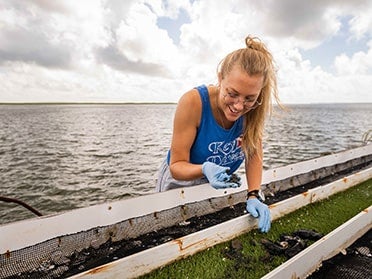
Supporting Student Research
We don’t just say we support student research — we pay for it. The College Office of Undergraduate Research sponsors an annual competition, awarding grants of up to $2,500 to cover related expenses and travel to national meetings.
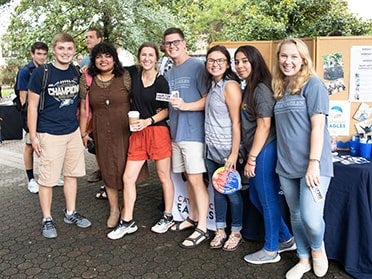
Get Involved
Meet other students, build your professional network and give back to the community by participating in campus organizations. Biology-focused student groups include Beta Beta Beta and the Biology Club.
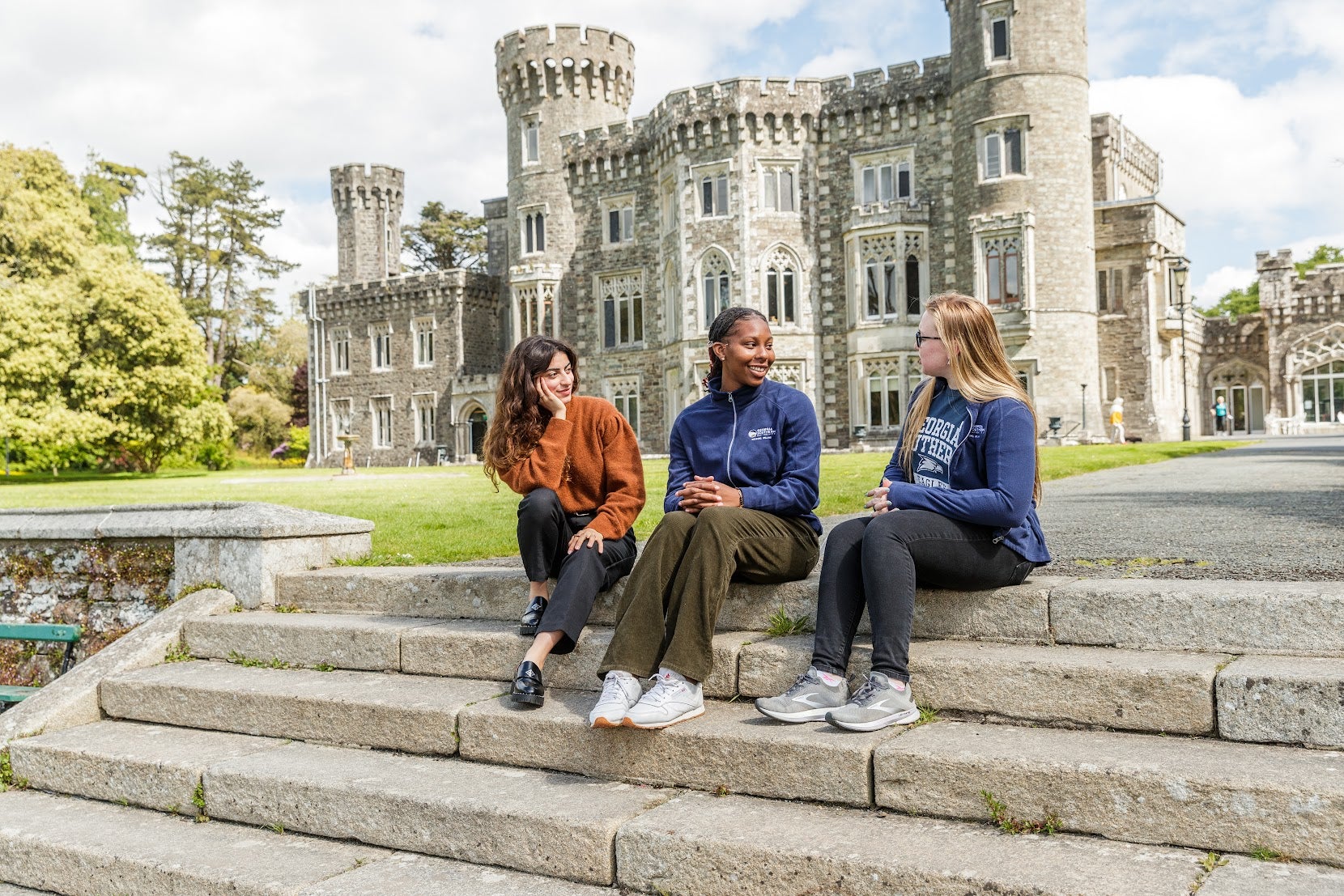
Study Abroad and Away Programs
There’s a whole world, with its ecosystems and their respective organisms, waiting to be explored. To jump-start your itinerary, join trips to the Florida Keys, Ecuador or Switzerland, or study Southeast Ireland from Georgia Southern’s Wexford Campus.
Want to Learn More?
Explore essential information about our BS/BA in Biology program, including application details, accreditation status, and licensing disclosures. Gain insight into the program’s credibility and requirements to help you start your journey toward success with the knowledge you need.
Apply by Aug. 1 for fall semester entry and Dec. 1 for the spring semester.
All applications are online. Follow these steps to complete the Georgia Southern application:
- Create an application account.
- Complete our online application using the PIN you received after creating your application account.
- Once complete, pay the $30 application fee or upload a valid fee waiver. Previous Georgia Southern applicants and dual enrollment students do not need to pay the fee.
- You can check your application status at My.GeorgiaSouthern.edu/admissions three days after completing your application. This page contains live information about your admission status, including a checklist of missing documents we need to make a decision.
Many of the best (and best-paying) biology-related jobs require an advanced degree. In fact, according to the U.S. Bureau of Labor Statistics, 60 percent of biology degree-holders go on to get a master’s or doctorate.
At Georgia Southern, students can get a head start through our Accelerated Bachelor’s to Master’s Pathway. Qualified students begin taking graduate-level coursework during their senior year to earn a master’s in applied geography, applied physical science or environmental science, finishing both credentials in about five years.
All Accelerated Pathways at Georgia SouthernFaculty Feature
More than 70,000 miles of rivers and streams stretch across Georgia. Dr. J. Checo Colón-Gaud’s studies the effects invertebrates, fish and amphibians have on processing organic matter — research that can gauge how quickly those ecosystems are likely to change in a warming climate.
Learn More About Dr. Colón-Gaud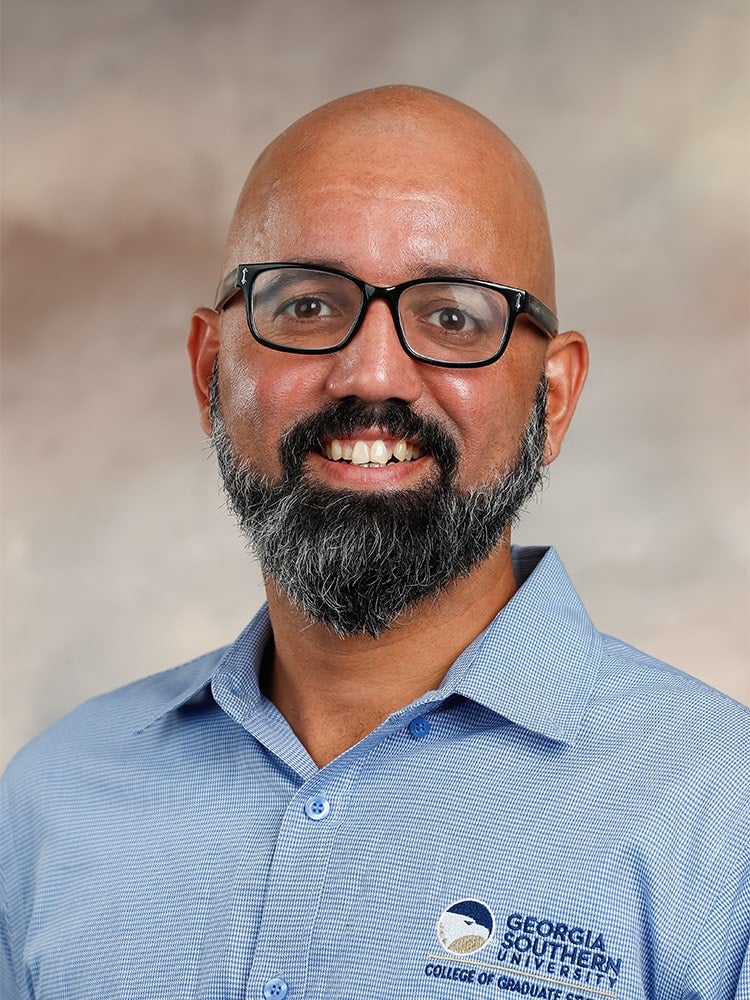
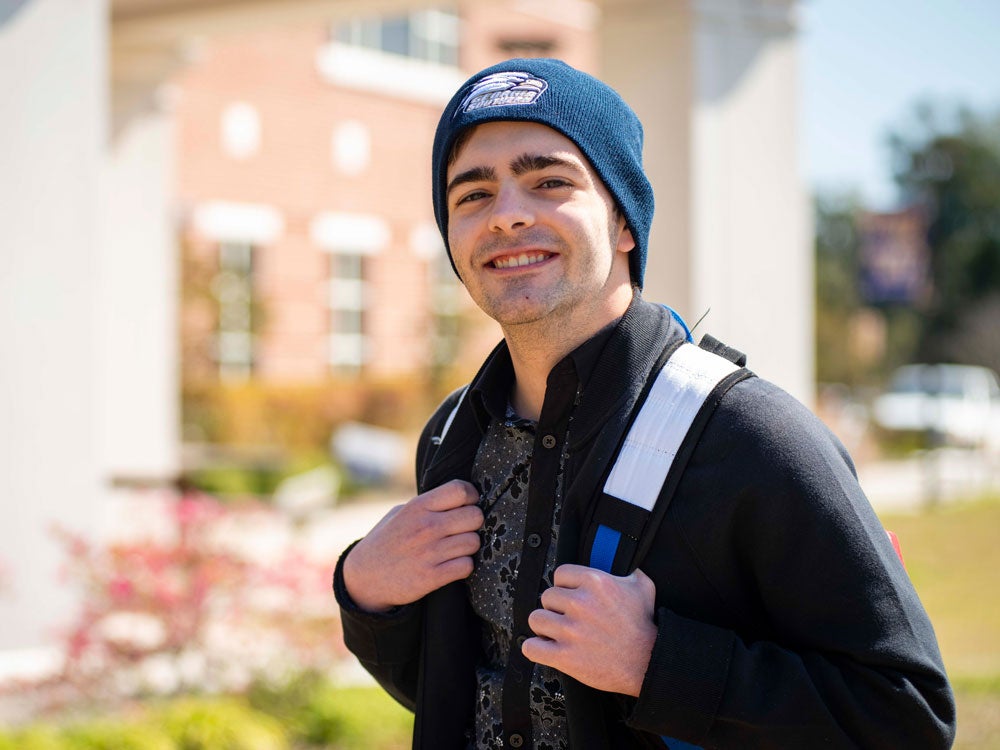
Take the Next Step
A biology degree from Georgia Southern can open the door to careers in fields from agriculture to the health professions to zoology. Contact us today to learn how you can get started.
Contact Us
Statesboro
Georgia Southern University
4324 Old Register Road
Statesboro, GA 30460
Phone: 912-478-5487
Armstrong
Science Center 1505
11935 Abercorn Street
Savannah, GA 31419
Phone: 912-344-3330
Liberty
175 West Memorial Drive
Hinesville, GA 31313
Phone: 912-877-1906

